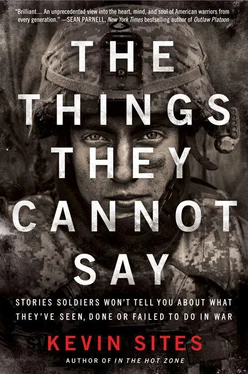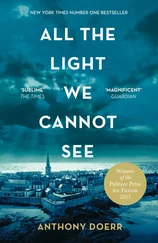“My father saw his two siblings [brothers] die on the death march to this place. Later, he buried his father, mother and remaining brother when they succumbed to starvation and illness. The thing that saved him was that before the war he had been sick and hospitalized with typhus [a bacterial infection]… During the war, when everyone was dying of it, he was already immune. His childhood illness saved his life but sentenced him to witness the death of his family. He even had to dig his father’s grave with his own hands.
“At least when you get to a camp they kill you outright. At a work camp they work you and give you food,” says Tailer. “What they did to them was to round them up and leave them to die. There was no medical attention—nothing.” Tailer’s father was there for two torturous years—from 1942 to 1944. He escaped to a Ukrainian village after his family died, where he worked on someone’s farm in exchange for lodging and food. After the war he came back to his village and found nothing left. He lived in an orphanage in Romania before deciding to migrate to Israel.
He got there after first traveling through much of Europe, finally coming to Israel with the Irgun, or Irgun Zvai Leumi (the National Military Organization), also commonly known by its Hebrew acronym Etzel. The Irgun was a Jewish Zionist paramilitary group that conducted attacks against both Arabs and the British Mandate in Palestine from 1931 to 1948. Israel attempted to absorb the Irgun into the new national army, the IDF, but they initially refused to be assimilated and continued to operate independently.
Tailer’s father was on board the Altalena , a weapons cargo ship that the Irgun had purchased and was using to bring weapons and supplies into Israel. When the Altalena arrived on Israel’s shores in June of 1948, the IDF ordered the captain to surrender the ship and its cargo of weapons. When the ship’s captain did not submit, the IDF fired an artillery round that struck the Altalena and set it on fire. The entire ship and its cargo was in danger of exploding like a giant ammunition dump. The Altalena ’s captain ordered the hundreds of Irgun fighters to abandon ship.
“He was on board the infamous Altalena weapons cargo ship,” Tailer says of his father, and when the dust cleared, he set foot on Israeli soil in 1948 with only the underwear he was wearing because he had to jump ship. He, like most of the other Irgun fighters, was finally integrated into the IDF.
“But they made him gain weight first because he was so thin from the war,” says Tailer. “He was immediately sent to the front lines. He always joked that if he’d been killed at the time, no one would’ve known. He didn’t have any family left in the world.
“That’s why he’s a big family man. He loves home; the fridge is always bursting with food. He gets very emotional about things. A picture of a hungry child in Congo can tear him to bits.”
Tailer’s mother was born in Haifa, Israel, but of a Czechoslovakian father and a Hungarian mother who had both fled Europe in 1933 just ahead of the Nazi rise to power. Their families, who stayed behind, were killed in Auschwitz.
Tailer’s parents met at a party in Haifa and married shortly after. He worked for the electric company and she was a teacher. They eventually had three children, two boys and one girl, with Lior in the middle, “the sandwich,” he said. But his mother felt the need to help fulfill the Zionist dream of settling the “wild west,” which was more challenging than living in a big city like Haifa. So the family moved to Hatzor HaGlilit, a frontier town in northern Israel. The violence surrounding Israel touched Tailer at an early age, most notably during the 1973 Yom Kippur War, when a coalition of Arab forces, led by Egypt and Syria, attacked on Judaism’s holiest day, Yom Kippur.
“As a five-year-old boy knowing we were being hit directly by the Syrians, it had quite an effect. I remember my mom would set out clothing on a small bench in the house so that the minute there was an air-raid siren, we’d grab the pile of clothing and run down to the bomb shelter. There was a lot of tension in the shelter because families were together in them. It was the entire neighborhood. There was a lot of solidarity between people but also a lot of tension because of the small, cramped space. We helped each other but also a lot of fights broke out between neighbors and friends.”
Tailer says that despite the violence that surrounded him during his childhood, it was filled with the two essentials: learning and play.
“During my years growing up my mother bought every encyclopedia on the market,” says Tailer. “We had an entire wall at home that was full of encyclopedias. To me it was more about knowledge for the sake of knowledge, less about specific authors I would follow. I’d read the encyclopedia from cover to cover to garner knowledge. To this day there’s still that wall at my parents’ home.”
Tailer says he was introverted as a child, but not awkwardly so. While he read voraciously, he was also into sports, running, soccer, playing basketball.
“I loved to run and hike and sometimes in the past I would run and play soccer and go hiking all in the same day. I was out of the house a lot.”
It was a routine that would later serve him well when he joined the army.
“In the army I was one of the best physically fit guys in my unit and also in the officers’ unit,” says Tailer.
In 1986, at age eighteen, Tailer was conscripted into the Israel Defense Forces for three years of “regular” service as required by Israeli law. But Tailer was not content to just be another soldier. His older brother had served in the legendary Golani Brigade and he was determined to do the same. [30] Also known as the 1st Brigade, the Golani Brigade is one of the most highly decorated in the IDF and is often one of the first units to be sent into military action. However, the unit has been cited for disciplinary problems, including revolts against officers and intimidation and abuse of Palestinians.
“Golani is one of the three best divisions in the army. It’s the unit that won the War of Independence for the country,” says Tailer. “Getting there is one thing and staying is another.
“You also have friends in other units and you know in other units it can be better. Easier,” he says. “For example, when you go three days without sleep and you’re constantly training, you’re sleeping standing up. Then you arrive at a tent camp after a long hike, and the officers say, ‘It’s eight P.M., go shower and then sleep.’ In those days, officers could do what they wanted. God help you if you got an officer who was slightly not okay in the head,” he says with a laugh. “It’s not like that today. So the officer would tell you to sleep. After only a half an hour of sleep, they’d get you up and tell you to put on your uniform and go out again. That’s something that can absolutely break you. Three days of continuous, grueling training is okay but when you’ve already showered and slept for half an hour you can lose it having to get up again and go.
“I remember nights out in pouring rain with the entire pack drenched and seeing homes up on hillsides off in the distance. I could see the coil lights of the space heater through the windows and I felt like I was going to break. Another night we slept in tents and it was raining and we were in a stream in a little valley and the tents were swept away with the stream and we were so tired we didn’t care. Our officers tried to rouse us and they couldn’t. We just wanted a few more minutes of sleep. The tents were gone, we were drenched and had no dry clothes. But we didn’t care. They had to punch us to get us up. All of that is absolutely normal [for training]. Some people can take that in stride; others who seem really strong physically, after two nights of that they fall apart. It depends upon the person. Once during live ammo training, someone shot someone else out of sheer exhaustion.
Читать дальше












